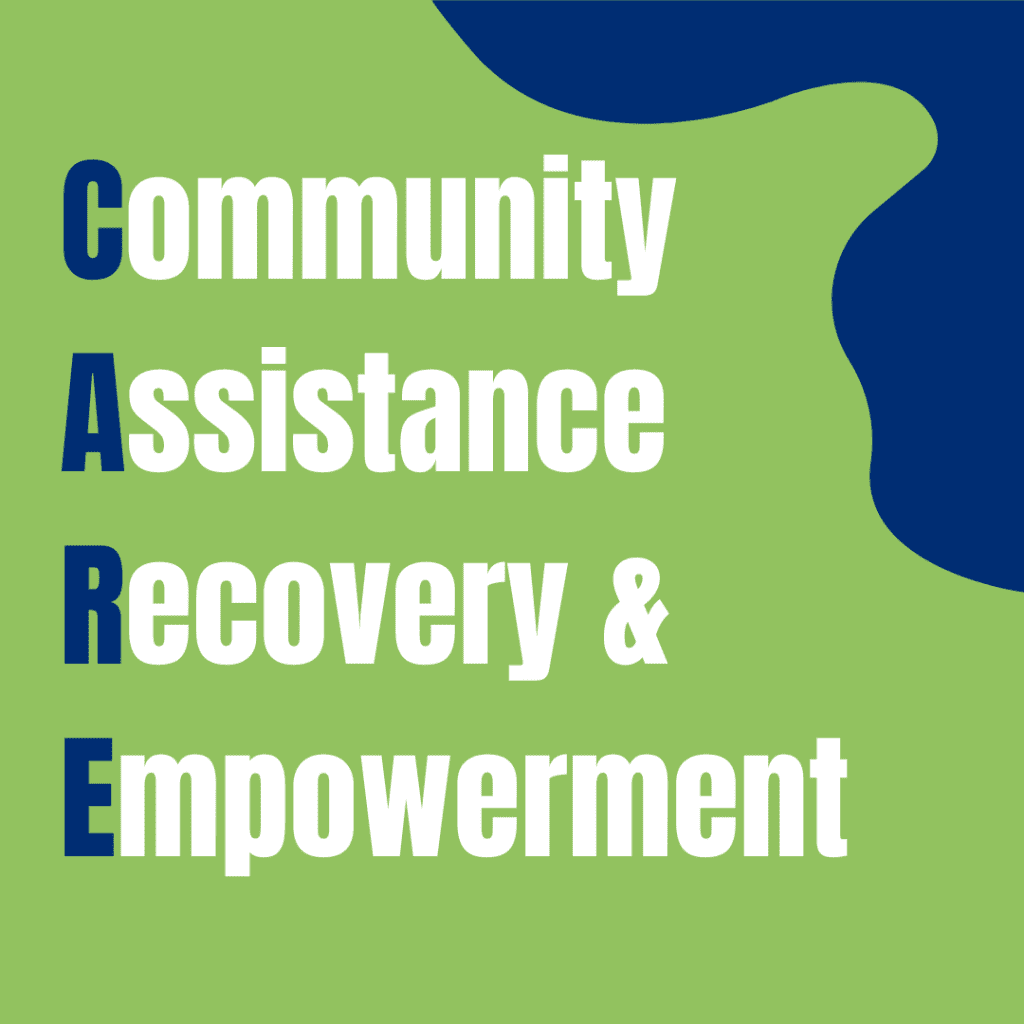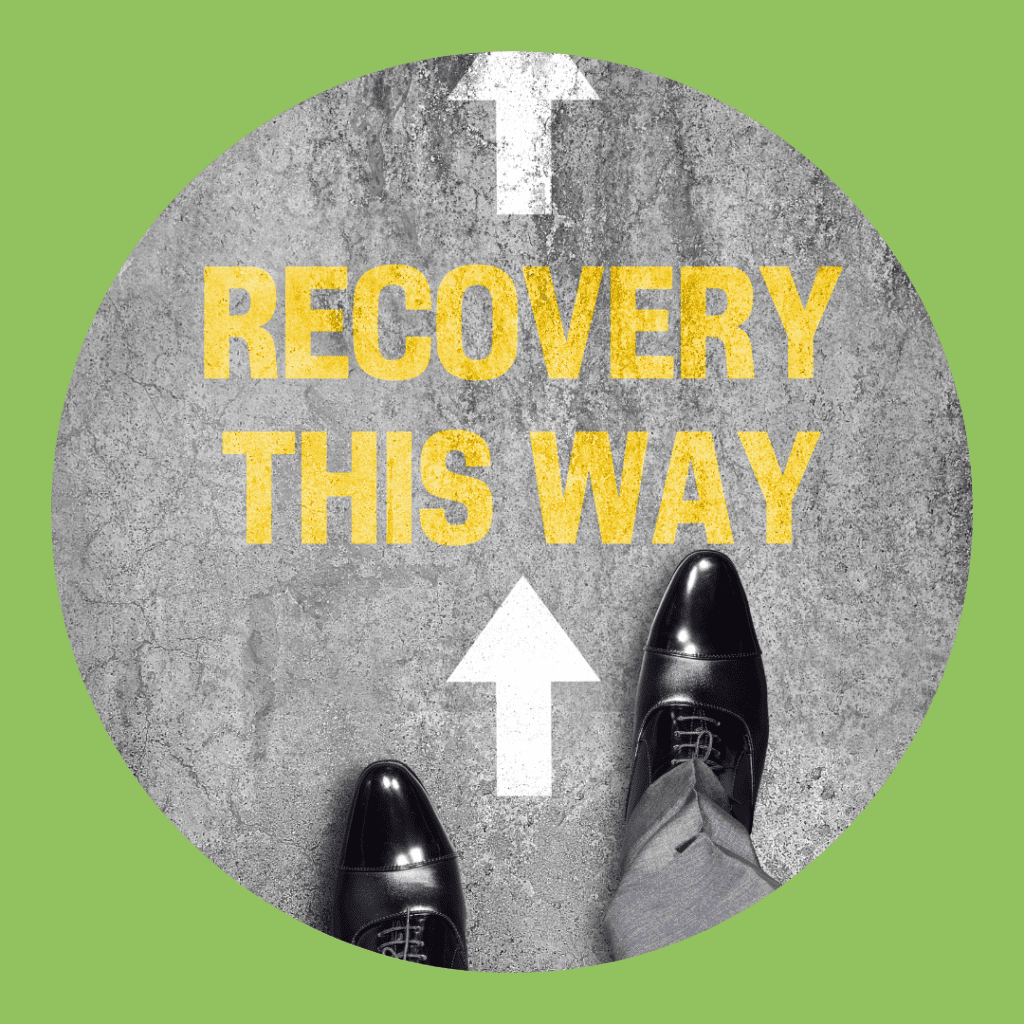In 2014, Recovery Based Engagement Support Teams (RBEST) was implemented in San Bernardino County in an effort to voluntarily engage individuals with untreated severe mental illness into treatment.
RBEST is a voluntary, client-centered program which provides community (field-based) outreach and engagement services to individuals living with untreated mental illness. Our objective is to “activate” and link individuals to appropriate treatment, which may include outpatient mental health treatment, substance use treatment, and intensive wraparound support. Our primary focus is to meet the initial needs and goals of the individual, eliminate obstacles through engagement and link the individual to appropriate treatment.
What is the purpose of RBEST?
RBEST strives to connect individuals to appropriate behavioral health services and resources by reducing barriers, providing education, and creating a supportive system of care. The goal is to help individuals living with a serious mental illness to better understand their needs, advocate for themselves, and achieve health and wellness, however they define it.
We envision a community in which RBEST staff can walk alongside individuals through their journey to recovery, without judgement or bias. Through building trust and linking to community-based resources, RBEST supports individuals living with a severe mental illness encouraging healthy, independent, and fulfilling lives.
On December 1, 2024, the RBEST program will serve CARE Act participants.

CARE Act Eligibility Criteria
Please watch the video below for more information about CARE Act eligibility criteria.

CARE Act Petition Process
This short video is a high-level overview of petitioning for system partners, including tips for what to expect and what to include.

CARE Act or Laura's Law?
The primary difference between CARE Act and Laura’s Law is the criteria required to enter the program. To learn more about Laura’s Law click here.
What is the CARE Act?
- CARE Act is a civil – not criminal – court process created in order to:
- Hold counties and local governments responsible for providing services to people living with untreated schizophrenia and/or other psychotic disorders
- This includes behavioral health services and other essential resources
- Provide legal counsel to the individual and promote supported decision-making while protecting their civil rights
- Provide support to individuals in need before their condition worsens
- Collaborate with multiple entities to ensure success
- This includes but is not limited to Public Defender’s office, Superior Courts, Office of the Public Guardian, and Patients’ Rights
- Hold counties and local governments responsible for providing services to people living with untreated schizophrenia and/or other psychotic disorders


Who does CARE Act serve?
- Adults, 18 years or older
- Individuals diagnosed with Schizophrenic or Psychotic Disorders
- Experiencing symptoms/behaviors related to a severe mental illness (SMI)
- Individuals who are not actively participating in a treatment program
- Individuals who need supervision to safely survive in the community and their behavior is worsening
- Individuals who need support and services to prevent a relapse, harm to others, or decline of behaviors that will lead to grave disability
- Individuals for whom participation in the CARE program is the least restrictive alternative
- Individuals who are likely to benefit from the CARE program
If you do not meet the requirements above, options for assistance are still available from the San Bernardino County Department of Behavioral Health, to access these services, call (888) 743-1478.
Who is NOT served by CARE Act?
- Individuals living with conditions other than schizophrenia/psychotic disorder
- Individuals experiencing any psychosis that is a result of:
- Traumatic brain injury
- Autism
- Dementia
- Substance Use Disorder
- Individuals who are receiving stable treatment voluntarily
- Individuals who can safely survive without supervision, are not declining, and are not considered gravely disabled

Who Can Petition?
| Family/Household | First Responder | Mental Health Provider | County | Tribal Jurisdiction |
|---|---|---|---|---|
| · Adult living with the individual · Spouse, parent, grandparent, sibling, adult child, caretaker · Self | · Law Enforcement · Firefighter · Paramedic · Mobile crisis response · Homeless outreach worker | · Hospital providing services to respondent · Behavioral health professional providing treatment · Public/charitable organization providing behavioral health services · Public/charitable organization providing residence | · County Behavioral Health Director or designee · Public Guardian or designee · Director or designee of Adult Protective Services | · Director or designee of a Tribal health service program · Director or designee of a Tribal behavioral health department · Judge or designee of a Tribal court |

How does CARE Act work?
A petition form is filed directly with the court, and if it is accepted by the judge, a Department of Behavioral Health (DBH) team will be assigned to reach out to the individual and attempt to engage them in voluntary services. If outreach efforts are unsuccessful, an individualized CARE treatment plan will be created to meet their needs. The plan may include housing options, medication support, counseling and additional resources. The plan will be given to the court for approval, and if it is accepted the individual will begin court ordered treatment. Periodic court hearings will be scheduled to review the individual’s growth and progress. The court will also ensure that DBH is providing appropriate services to the individual in a timely manner.
If you are an adult who is eligible to petition, and you believe an individual can benefit from the CARE Act, you can petition the court directly. To learn more about that process, please visit the County of San Bernardino Superior Court website by clicking the link below.
San Bernardino County Superior Court Public Notice: November 1, 2024
Resources for Completing a Petition
- Petition forms can be found on the Judicial Council’s CARE Act Forms website, including:
- Information for Petitioners – CARE 050.
- Information for Respondents – CARE 060.
- How to File the CARE – 100 Form.
- The Petition to Commence CARE Act Proceedings (CARE-100).
- The Mental Health Declaration – CARE Act Proceedings (CARE 101 form).
- Resources for Specific Petitioner Types
- Public Guardians & Conservators: Role of Public Guardians & Conservators in Petitioning (training video and material)
- Family Members: The Petition Process on CARE Act (NAMI video)

Community-based mobile crisis response teams are available in English and Spanish 24/7/365 – Call (800) 398-0018 or text (909) 420-0560.
What services are offered through the CARE Act?
The DBH RBEST CARE Act services have two main components:
1. Outreach and Engagement
2. Treatment
Outreach and engagement are provided throughout the entire process. Services may include:
- Employment support
- Behavioral Health services
- Applying for benefits such as Medi-Cal and Social Security Income (SSI)
- Provide referrals to food banks, clothing, and shelter
- Provide referrals for substance use treatment
- Provide referrals to a primary care physician
- Education services to families learning to live with an individual with a mental illness
For individuals going through the court process, the services are delivered using a multi-disciplinary team approach that develops a treatment plan specific to the individual’s needs. CARE Act recipients will receive the following treatment services:
- Full Service Partnership (FSP) intensive client-directed treatment and case management services, including obtaining community residential housing
- Assessment of needs
- Development of treatment plan that includes:
- Outreach to families
- Coordination of access to a number of services, including medications, psychiatric and psychological services, and substance use treatment
- Education/understanding and management of symptoms
- Advocacy
- Linkage with appropriate services as well as monitoring follow-through with treatment services
The goal of both components is to have a respectful communication and supportive relationship with the individual to help find services that meet their needs.
What is the difference between a CARE Agreement and a CARE Plan?
CARE Agreement
- Individual agrees to accept behavioral health treatment on a voluntary basis, and all parties agree on the treatment options
- Agreement determines length of treatment
- Progress hearing held after 60 days of the agreement
CARE Plan
- Court will order the county to provide the individual with services based on a treatment plan specific to the individual’s needs and personal goals
- Treatment plan ordered for 12 months
- Status hearing held every 60 days for the duration of the plan
The CARE Agreement and CARE Plan, include the following:
- Treatment options are modified to represent the individual’s culture and language
- Treatment options may include:
- Psychiatric services and medication support
- Mental health services, such as individual therapy
- Connection to social services, housing, and substance use services
- Peer Support
- May include stabilization medications (Note: Medication cannot be forcibly administered)
What is the difference between CARE Act and Laura’s Law?
Both CARE Act and Laura’s Law are integrated into the existing Recovery Based Engagement Support Teams (RBEST) to engage individuals wherever they are located (Home, Inpatient Hospital, Park, etc.) to build a strong relationship that connects the individual to appropriate services and adds an intensive field based treatment response. Both involve a civil court process that allows the Department of Behavioral Health to provide treatment to those who have otherwise been unsuccessful in voluntary services.
| CARE Act | Laura’s Law | |
|---|---|---|
| Eligibility Criteria | Individuals must have a diagnosis on the Schizophrenia spectrum or other psychotic disorder | A specific diagnosis is not required, but there must be evidence of a history of treatment noncompliance |
| Treatment Duration | Authorizes treatment for up to 12 months, or if extended 24 months | Authorizes treatment for up to 6 months |
| Who Can Petition | Family members, service providers, and other authorized parties are able to petition the court directly | DBH accepts referrals for individuals who may be eligible. If after engagement, DBH determines the individual does meet criteria, the County Behavioral Health Director may file a petition for Assisted Outpatient Treatment (AOT) |
For more information on the CARE Act, please visit the CalHHS website here.
Frequently Asked Questions
Expand All/Collapse All
What is the CARE Act?
The Community Assistance, Recovery, and Empowerment (CARE) Act creates a court process for adults living with schizophrenia or other psychotic disorders to receive mental health and substance use treatment.
What is the purpose of CARE?
The CARE Act is developed as another way for family and others to request services for a loved one diagnosed with schizophrenia or other psychotic disorder through a court petition process. It was created to help reduce the cycle of jail and psychiatric emergency room visits.
The individual will keep all their individual rights throughout the process and will be provided legal assistance to make sure that they have an active role in their treatment plan.
How does the program work?
A petition form is filed directly with the court. If it is accepted by the judge, a Department of Behavioral Health (DBH) team will be assigned to reach out to the individual and attempt to engage them in voluntary services. If outreach efforts are unsuccessful, an individualized CARE treatment plan will be created to meet their needs. The plan may include housing options, medication support, counseling, and additional resources. The plan will be given to the court for approval, and if accepted, the individual will begin court-ordered treatment. Periodic court hearings will be scheduled to review the individual’s growth and progress. The court will also ensure that DBH is providing appropriate services to the individual in a timely manner.
What is the difference between AOT and CARE Act?
Both AOT and CARE Act are court ordered treatment programs. The services provided are similar; however the petition processes and eligibility criteria differ. A petition for AOT must be filed by DBH whereas, the CARE Act petition can be directly filed to the court by anyone over the age of 18 who is concerned for the individual’s health and welfare due to their mental health conditions.
Does an individual need to first try AOT services before they can be considered for CARE Act services?
No. An individual is not required to go through the AOT program to be eligible for CARE Act services. For more information on AOT, click here.
What Services are offered through the CARE Act program?
The DBH CARE Act program has two main components:
- Outreach and engagement
- Treatment
Outreach and engagement are provided throughout the entire process. Services may include:
- Employment support
- Mental health services
- Applying for benefits such as Medi-Cal and Social Security Income
- Provide referrals to food banks, clothing, and shelter
- Provide referrals for drug and alcohol treatment
- Provide referrals to a primary care physician
- Education services to families learning to live with an individual with a mental illness.
For individuals going through the court process, DBH will provide treatment plans specific to that individual’s needs. CARE Act clients will be eligible to receive the following treatment services:
- Full Service Partnership (FSP) intensive client-directed treatment and case management services, including obtaining community residential housing.
- Community-based, mobile, multi-disciplinary behavioral health team.
- Assessment of needs
- Development of treatment plan that includes:
- Outreach to families
- Coordination of access to a number of services, including medications, psychiatric and psychological services, and substance use treatment.
- Education/understanding and management of symptoms.
- Advocacy
- Linkage with appropriate services as well as monitoring follow-through with treatment services.
The goal of both components is to have a respectful communication and supportive relationship with the individual to help find services that meet their needs.
Can a substance use disorder alone qualify for CARE Court?
No, an individual who only has a substance use disorder would not be eligible for CARE Act services. However, if there is a dual diagnosis or concern of both mental health and substance use disorders, the person can be screened through the RBEST referral process for potential service needs including referrals for substance use disorder treatment services.
Can the CARE Act force an individual to take medication?
All behavioral health services are voluntary including psychiatrist and medication management. Medication support services can be offered but medication cannot be forced.
Can the CARE Act mandate substance use treatment?
Is the CARE Act a type of conservatorship?
The CARE Act is not any form of conservatorship, it is an outpatient treatment program. Throughout the entire process, the participant keeps the right to make their own decisions and can choose to leave the program at any time. However, if clinically necessary DBH can assist in connecting the individual with our Conservatorship Investigation Unit (CIU).
Does the CARE Act program provide housing during and after treatment?
DBH offers housing linkage and assistance services at various levels of care for participants of the CARE Act program throughout the duration of the treatment services. Individuals who discharge or leave program may be linked to other available housing resources in the community.
What is a CARE Supporter?
The individual that is subject of the petition can choose a person to be their CARE Supporter. The CARE Supporter should make sure that the individual’s best interests and preferences are considered, especially in the development of the CARE Plan.
Will an Individual that is the Subject of a CARE Act Petition Have Attorney Representation?
From the initial appearance in Court to the final resolution, an individual that is the subject of the CARE Act petition will have an attorney representing the individual regardless of the individual’s ability to pay. The attorney will communicate the individual’s needs and preferences to the Court while the treatment plan/CARE Plan is created. Throughout the entire process, the attorney will ensure the individual’s rights are protected.
Can the individual choose to leave the program without completing their CARE Plan?
Yes, even if they do not complete the CARE Plan the individual is not subjected to criminal or civil punishment. Although a court order is in place, the entire process is based on the individual choosing to participate, and the program is designed to support the individual’s success.
Can I receive assistance with my petition?
Assistance with completing a petition for CARE Act is provided through the Superior Court of California, County of San Bernardino Self-Help Center.
Where can I file a petition?
The petition for CARE Act would be filed through the Superior Court of California, County of San Bernardino, in the city of Fontana. Electronic filing options may be available in the court’s Self Help Centers and or information can be found on the court website.
Will the person who files the petition be provided updates about the individual’s progress/court decisions?
The person submitting documents to the court may be at the first hearing. Once the judge orders DBH to evaluate the individual, DBH will attend all court hearings and the petitioner may no longer be involved with court proceedings. The individual subject to the petition may elect a CARE Supporter who may be involved in the court process. All other requests will need to follow privacy laws.
Where do CARE Act court proceedings take place?
Superior Court of California, County of San Bernardino
Does the individual need to have health insurance or Medi-Cal to quality for CARE Act services?
No, eligibility is not determined by the individual’s health insurance. Support services can be provided for individuals to obtain Medi-Cal if needed.
Does the individual need to have proof of citizenship?
Proof of citizenship is not required to receive mental health treatment services through the Department of Behavioral Health, nor to petition for CARE Act services.
What is the CARE Act?
The Community Assistance, Recovery, and Empowerment (CARE) Act creates a court process for adults living with schizophrenia or other psychotic disorders to receive mental health and substance use treatment.
What is the purpose of CARE?
The CARE Act was developed to provide another way for family and others to request services for a loved one diagnosed with schizophrenia or other psychotic disorder through a court petition process. It was created to help reduce the cycle of jail and psychiatric emergency room visits.
The individual will keep all their individual rights throughout the process and will be provided legal assistance to ensure they have an active role in their treatment plan.
What is the difference between Laura’s Law and CARE Act?
Both Laura’s Law and CARE Act are court ordered treatment programs. The services provided are similar, however the petition processes and eligibility criteria differ. A petition for Laura’s Law must be filed by DBH whereas the CARE Act petition can be filed by anyone over the age of 18 who is concerned for the individuals’ health and welfare due to their mental health conditions.
Does an individual need to first try AOT services before they can be considered for CARE Act services?
No, an individual is not required to go through the AOT program to be eligible for CARE Act services.
Can a substance use disorder alone qualify for CARE Act?
No. An individual who only has a substance use disorder would not be eligible for CARE Act services. However, if there is a dual diagnosis or concern of both mental health and substance use disorders, the person can be screened through the RBEST referral process for potential service needs including referrals for substance use disorder treatment services.
Can the CARE Act force an individual to take medication?
All behavioral health services are voluntary including psychiatrist and medication management. Medication support services can be offered, but medication cannot be forced.
Can the CARE Act mandate substance use treatment?
Is the CARE Act a type of conservatorship?
The CARE Act is not any form of conservatorship; it is an outpatient treatment program. Throughout the process, the participant maintains the right to make their own decisions and can choose to leave the program at any time. However, if clinically necessary, DBH can assist in connecting the individual with the Conservatorship Investigation Unit (CIU).
Does the CARE Act provide housing during and after treatment?
DBH offers housing linkage and assistance services at various levels of care for participants of the CARE Act program throughout the duration of the treatment services. Individuals who discharge or leave program may be linked to other available housing resources in the community.
What is a CARE Supporter?
The individual that is the subject of the petition can choose a person to be their CARE Supporter. The CARE Supporter should make sure that the individual’s best interests and preferences are considered, especially in the development of the CARE Plan.
Will an individual that is the subject of a CARE Act petition have attorney representation?
From the initial appearance in Court to the final resolution, an individual will have attorney representation regardless of the individual’s ability to pay. The attorney will communicate the individual’s needs and preferences to the Court while the treatment plan/CARE Plan is created. Throughout the entire process, the attorney will ensure the individual’s rights are protected.
Can the individual choose to leave the program without completing their CARE Plan?
Yes. If an individual does not complete the CARE Plan they are not subject to criminal or civil punishment. Although a court order is in place, the entire process is based on the individual choosing to participate, and the program is designed to support the individual’s success.
Can I receive assistance with my petition?
Assistance with completing a petition for CARE Act is provided through the Superior Court of California, County of San Bernardino Self-Help Center.
Where can I file a petition?
The petition for CARE Act is filed through the Superior Court of California, County of San Bernardino, in the city of Fontana. Electronic filing options may be available in the court’s Self Help Centers and or information can be found on the court website.
Will the person who files the petition be provided updates about the individual’s progress/court decisions?
The person submitting documents to the court may be at the first hearing. Once the judge orders DBH to evaluate the individual, DBH will attend all court hearings and the petitioner may no longer be involved with court proceedings. The individual subject to the petition may elect a CARE Supporter who may be involved in the court process. All other requests will need to follow privacy laws.
Where do court proceedings for CARE Act take place?
Superior Court of California, County of San Bernardino
Does the individual need to have health insurance or Medi-Cal to quality for CARE Act services?
No. Eligibility is not determined by the individual’s health insurance. Support services can be provided for individuals to obtain Medi-Cal, if needed.
Does the individual need to have proof of citizenship?
Proof of citizenship is not required to receive mental health treatment services through the DBH, nor to petition for CARE Act services.